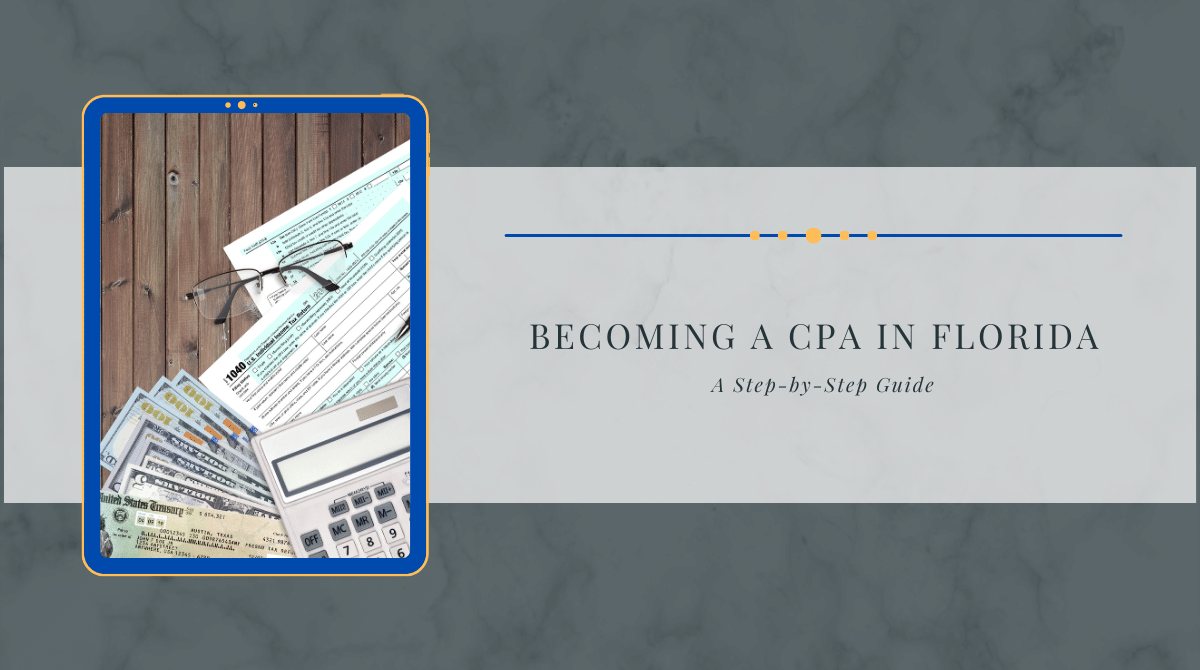In response to a CPA pipeline crisis and a growing demand for skilled accountants, the National Association of State Boards of Accountancy (NASBA) is actively seeking solutions to attract and educate the next generation of CPAs. To address this challenge, it is crucial for aspiring accountants to understand the comprehensive process of becoming a Certified Public Accountant (CPA). This process involves completing educational requirements, passing the Uniform CPA Exam, gaining relevant experience, and staying updated through continuing professional education.
Table of Contents
Educational Requirements for CPA
Becoming a CPA begins with fulfilling the educational prerequisites, which vary by state. These often include:
Bachelor’s Degree Requirement
A fundamental requirement for aspiring CPAs is earning a bachelor’s degree from an accredited institution. While the degree typically focuses on accounting or a related field like business administration, it’s essential to ensure that the coursework aligns with the CPA exam and licensure requirements.
Credit Hour Requirements
The NASBA mandates 150 semester hours of education for CPA candidates to qualify for licensure. However, some states, including Florida, permit candidates to sit for the CPA exam after completing 120 semester hours, with the understanding that the remaining 30 hours will be completed before licensure.
Bridging the Credit Gap
Many individuals pursue a master’s degree in accounting or an MBA with an accounting concentration to meet the 150-hour requirement. This additional education helps bridge the credit hour gap and deepens their understanding of the field.
Specific Coursework
Florida, like many other states, specifies particular coursework to ensure CPA candidates have a solid foundation in critical areas of accounting and business. For example, Florida requires 24 semester hours in upper-division accounting courses and another 24 semester hours in upper-division general business courses, including a mandatory three semester hours in business law.
Experience Requirements for CPA
Candidates for CPA must meet the experience requirements set forth by their state boards in addition to the educational prerequisites. These requirements typically entail the following:
Duration of Work Experience
CPA licensure requires candidates to gain 1 to 2 years of accounting-related work experience. This period is crucial for applying theoretical knowledge to practical situations and bridging the gap between academic learning and professional application.
Types of Acceptable Work
The work experience must be varied and relevant, encompassing roles in public accounting firms, industry, government, or academia. Responsibilities should involve critical areas such as accounting, auditing, tax laws, financial planning, or consulting services, offering broad exposure to the field.
Supervision by a Licensed CPA
Crucially, this work experience must be completed under the supervision of a licensed CPA. This requirement ensures that aspiring CPAs receive guidance and mentorship from experienced professionals and gain insights into the complexities of accounting practices, ethical considerations, and professional responsibilities.
The CPA Exam: A Crucial Step Towards Licensure
Overview of the CPA Exam
The American Institute of Certified Public Accountants (AICPA) manages the Uniform CPA Examination, which consists of three core sections (Auditing and Attestation, Financial Accounting and Reporting, and Regulation) and allows candidates to select one discipline-specific section.
Florida
Florida sets a distinctive path for CPA candidates, focusing on educational rigour and specialized coursework requirements, including upper-division accounting and general business courses. This emphasis ensures candidates possess a deep understanding of accounting principles and the broader business environment.
California, Texas, and Colorado
California mandates a Social Security number and passes an ethics exam, while Texas requires candidates to demonstrate a tangible connection to the state. Colorado, noted for its flexibility, allows candidates to take the CPA exam with 120 semester hours but still requires the completion of 150 semester hours for licensure.
Structure of the CPA Exam
Core Sections
The CPA exam consists of three core sections: Auditing and Attestation (AUD), Financial Accounting and Reporting (FAR), and Regulation (REG). These sections evaluate candidates’ understanding of auditing standards and procedures, financial accounting principles, and regulatory requirements.
Discipline Sections
The discipline sections of the CPA exam allow candidates to tailor their certification to align with specific career paths or areas of interest within the accounting profession, fostering a more specialized and adaptable accounting workforce.
Exam Format and Duration
Each core section lasts four hours and combines multiple-choice questions with task-based simulations to test the practical application of knowledge. The passing score is 75 for each exam section on a scale of 0 to 99.
Additional Requirements and Considerations
Timeframe for Passing All Exam Sections
Traditionally, candidates must pass all exam sections within 18 months. However, some states are extending this timeframe to 30 months to provide candidates with greater flexibility and support amidst the challenges facing the CPA pipeline.
Preparation Tips for the CPA Exam
Comprehensive study and review courses focusing on both core and chosen specialized sections are crucial for success. Candidates should consult resources from the AICPA and NASBA to stay informed about any updates to the exam content, structure, or requirements.
Applying for a CPA License
Confirming Eligibility
Before applying for licensure, ensure you meet the comprehensive set of requirements established by the Florida State Board of Accountancy, including educational prerequisites, passing all sections of the CPA exam, and fulfilling the specified work experience under a licensed CPA.
Application Process and Approval
Once all prerequisites are met, including the CPA exam, ethics exam (if applicable), and background check, candidates can proceed with the licensure application, submitting all necessary documentation and fees to the Florida State Board of Accountancy. After review, candidates will receive notification of their licensure status upon approval.
Maintaining CPA Certification
Continuing Professional Education (CPE) Requirements
CPAs must fulfill CPE requirements to stay knowledgeable, competent, and up-to-date with changes in laws, regulations, and practice. CPE requirements vary by state but generally involve completing a certain number of education hours over a specific period, typically every one to three years.
Methods for Earning CPE Credits
CPAs can earn CPE credits through various activities, including attending workshops, completing relevant college courses, participating in professional development programs, publishing articles or books, and teaching, or instructing in relevant subject areas.
Conclusion
Becoming a CPA involves meeting specific educational criteria, passing the comprehensive CPA exam, fulfilling state-specific requirements, gaining relevant work experience, and committing to continuous professional education. This journey ensures that CPAs are well-equipped with the knowledge, ethics, and skills necessary to excel in the accounting profession.














